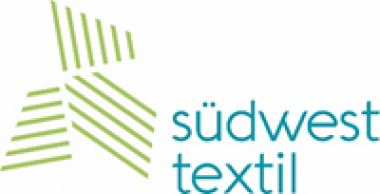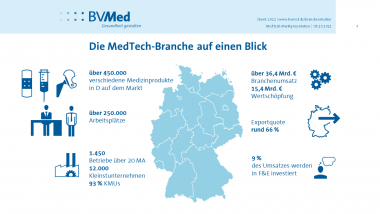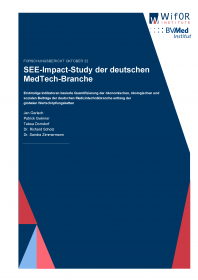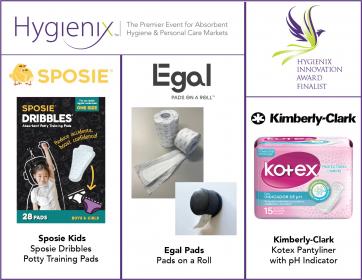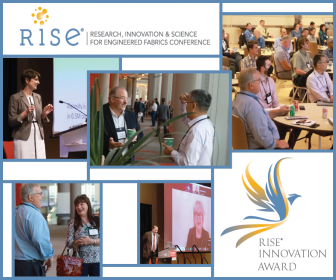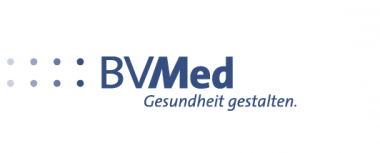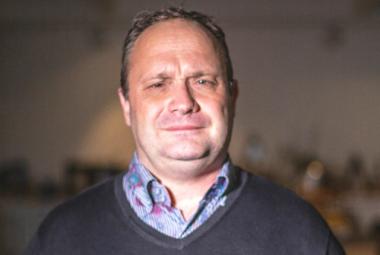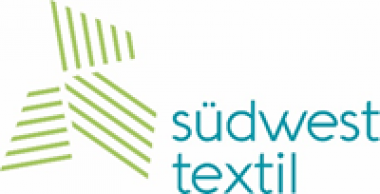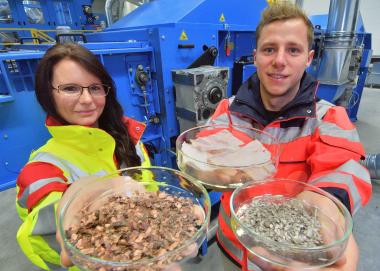BVMed gründet eigenes wissenschaftliches Institut
Der Bundesverband Medizintechnologie (BVMed) hat ein wissenschaftliches Institut gegründet, das sich unter anderem der Versorgungs- und Gesundheitssystemforschung sowie methodischen Fragen der Nutzenbewertung und des Health Technology Assessments (HTA) von Medizinprodukten widmen wird. „Zielsetzung des Institutes ist die Aufbereitung und methodische Diskussion von Evidenz zur Stärkung und Sicherung der Patientenversorgung mit Medizinprodukten“, so die Leiterin des BVMed-Instituts, Anne Spranger, auf der Jahrespressekonferenz des deutschen Medizintechnik-Verbandes.
Das BVMed-Institut wird dazu mit den relevanten Institutionen, beispielsweise den wissenschaftlichen Instituten der Krankenkassen, anderen Forschungseinrichtungen und auch Fachgesellschaften in Dialog treten sowie eine Übersicht zu Datenquellen und -methoden erarbeiten. Dazu sind eigene Auswertungen und Publikationen geplant. Zu den weiteren Aufgaben gehört die Organisation von Informations- und Fortbildungsformaten und die Erstellung von Leitfäden.
BVMed | Bundesverband Medizintechnologie e.V.







